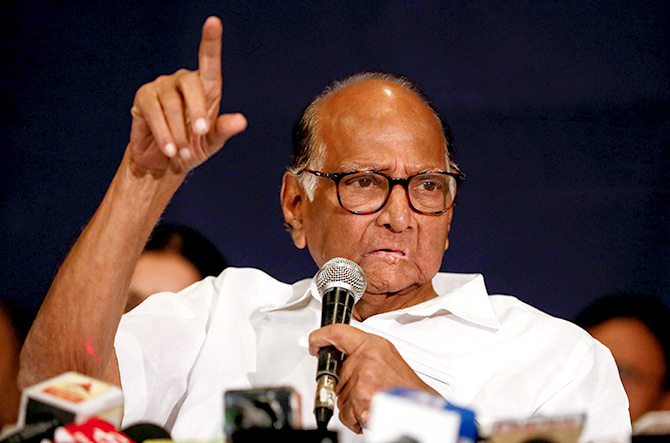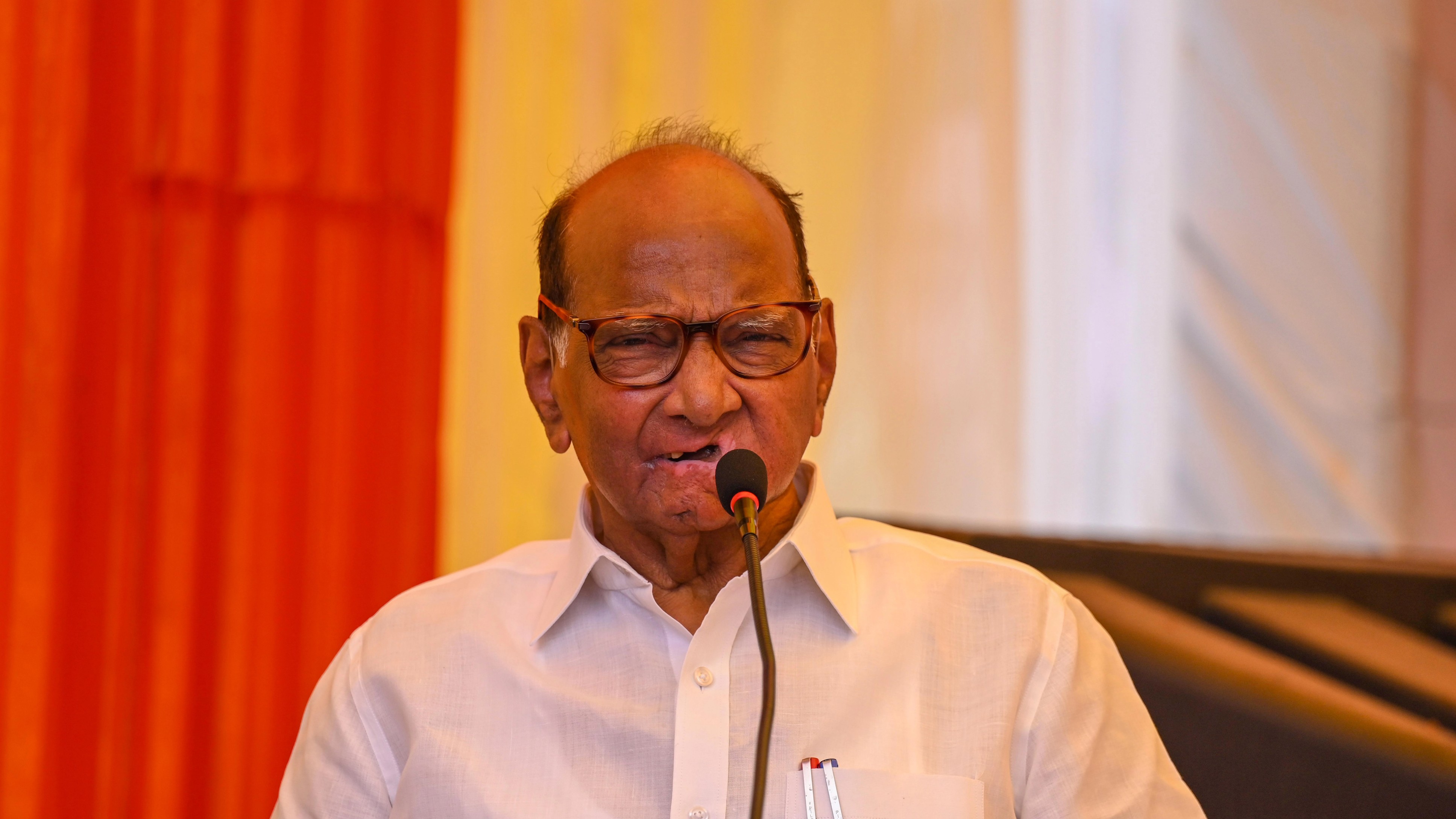Sharad Pawar Pushes for Constitutional Amendment to Increase Reservation Cap Amid Rising Tensions Ahead of Maharashtra Assembly Elections
With the Maharashtra assembly elections approaching, Nationalist Congress Party (NCP) chief Sharad Pawar has intensified pressure on the Bharatiya Janata Party (BJP)-led central government by advocating for a constitutional amendment to raise the reservation cap for education and government jobs from the current 50% to 75%. The veteran leader’s proposal comes amidst rising tensions over the Maratha reservation issue, which has become a critical point of contention in Maharashtra’s political landscape.

Sharad Pawar’s push for increased reservation stems from the long-standing demands of various communities, including the Marathas, Dhangars, and Lingayats, who have been staging protests for greater representation in educational institutions and government jobs. Pawar, during a recent interaction with reporters in Sangli, pointed to the example of Tamil Nadu, where the reservation quota for Scheduled Castes, Scheduled Tribes, and Other Backward Classes (OBCs) was increased to 69% in 1990. “The problem is that no government can cross the 50% cap on reservation quota. If a state wants to have more reservation, changes will have to be made in Parliament by bringing legislation,” Pawar said, urging the central government to take decisive action.
The backdrop to Sharad Pawar’s remarks is the ongoing Maratha reservation row, which has escalated as the assembly polls draw closer. The Maratha community, led by prominent activist Manoj Jarange-Patil, is pushing for its inclusion under the OBC category. Currently, Marathas do not qualify for OBC status, but there have been demands to issue Kunbi caste certificates to Marathas, a move that would grant them access to the 27% OBC reservation quota in Maharashtra.
Kunbis, historically a farming community, are classified as OBCs in Maharashtra and benefit from the quota system. The proposal to grant Kunbi certificates to Marathas has triggered a backlash from OBC groups, who argue that such a move would dilute the benefits reserved for them. OBC activists have launched counter-agitations, opposing the inclusion of Marathas in their quota.
This contentious issue has placed the ruling Mahayuti government, an alliance led by the BJP, in a difficult position. The unresolved Maratha-OBC reservation row is seen as one of the primary reasons for the government’s poor performance in the Lok Sabha elections. As the assembly polls near, there are fears that the controversy could once again damage the ruling coalition’s chances. The situation is further complicated by other communities, such as the Dhangars and Lingayats, who have been staging protests demanding reservation benefits.
Sharad Pawar believes that increasing the reservation cap is the only solution to these growing tensions. “We will have to increase it by 25%. In that case, those who are not getting reservation will be able to get it, and those who are getting less reservation can also be considered. All the issues will be resolved,” he argued. By raising the cap to 75%, Pawar suggests, the government could address the demands of multiple communities without encroaching on the rights of others.
This is not the first time Pawar has supported the Maratha community’s demands for reservation. A prominent figure from the Maratha community himself, Sharad Pawar has consistently advocated for greater inclusion of Marathas in the state’s reservation system. He had also met with Manoj Jarange-Patil after the activist launched an indefinite hunger strike in protest against the police lathi-charge in Jalna last September. The incident, which saw police resorting to force against peaceful Maratha protesters, sparked widespread outrage and added fuel to the ongoing reservation debate.
The NCP-SP’s alliance partner, the Indian National Congress, has also backed Pawar’s call for increasing the reservation cap. The Congress party has vowed to pass a constitutional amendment raising the 50% cap if it is voted to power at the Centre. The issue of reservation has long been a contentious one, with several states—Maharashtra, Odisha, and Chhattisgarh, among others—attempting to increase their reservation quotas, only to be restrained by the Supreme Court. The court has consistently upheld the 50% cap, citing it as a constitutional limit to maintain the balance between merit and affirmative action.

While the battle for increased reservation continues to play out in courtrooms and political arenas, the stakes are high for Maharashtra’s political parties. Failure to resolve the Maratha reservation row could have far-reaching consequences in the assembly elections, with several communities feeling marginalized and disillusioned. The ruling Mahayuti government is already on shaky ground, and Sharad Pawar’s renewed push for a constitutional amendment could sway the electorate’s opinion.
In addition to discussing the reservation issue,Sharad Pawar also touched upon the return of several political leaders to his party ahead of the assembly polls. Leaders from both the BJP and the Ajit Pawar faction of the NCP have rejoined the Sharad Pawar-led NCP in recent weeks. Commenting on the development, Sharad Pawar said, “These are old supporters who had gone to the wrong place. They realised their mistake and decided to return. I welcome them as we are old colleagues and have worked together for the last many years.” The return of these leaders strengthens Sharad Pawar’s position ahead of the elections and reflects the internal dynamics within Maharashtra’s political landscape.
As Maharashtra gears up for its assembly elections, the reservation issue, particularly the Maratha-OBC row, is set to dominate political discourse. Pawar’s call for a constitutional amendment to raise the reservation cap may serve as a rallying point for those seeking greater representation, but it also presents a complex legal and political challenge that will require deft maneuvering by both the state and central governments. For now, all eyes remain on the upcoming elections, where the future of Maharashtra’s reservation policies will likely be decided.


